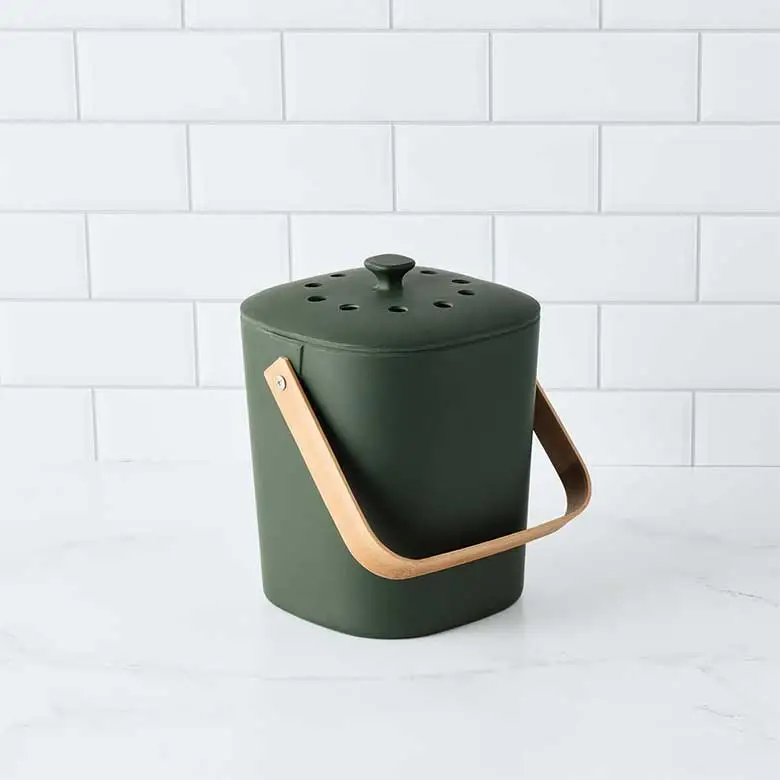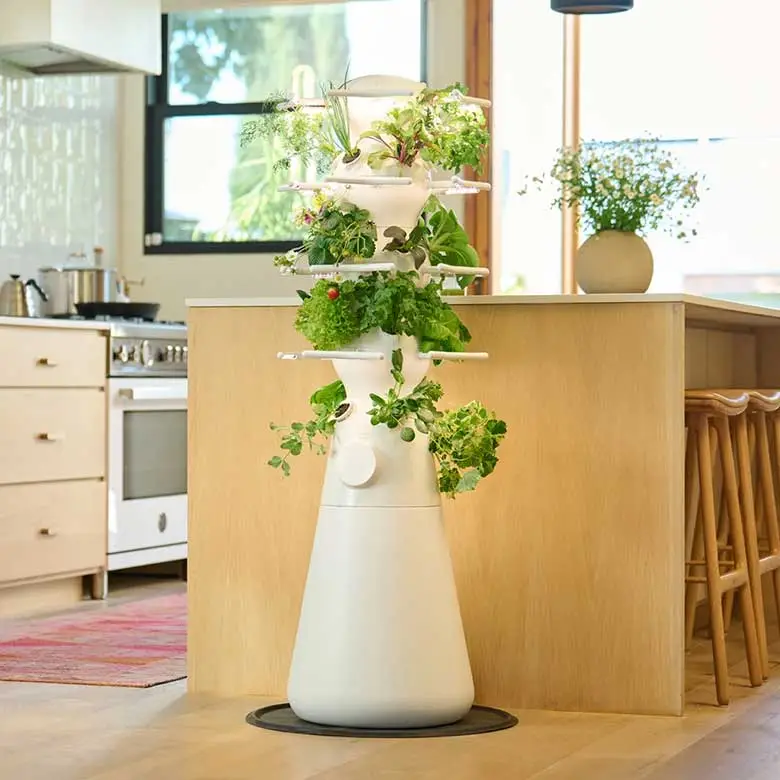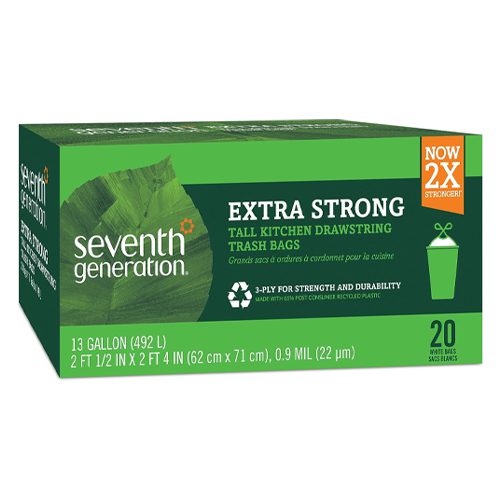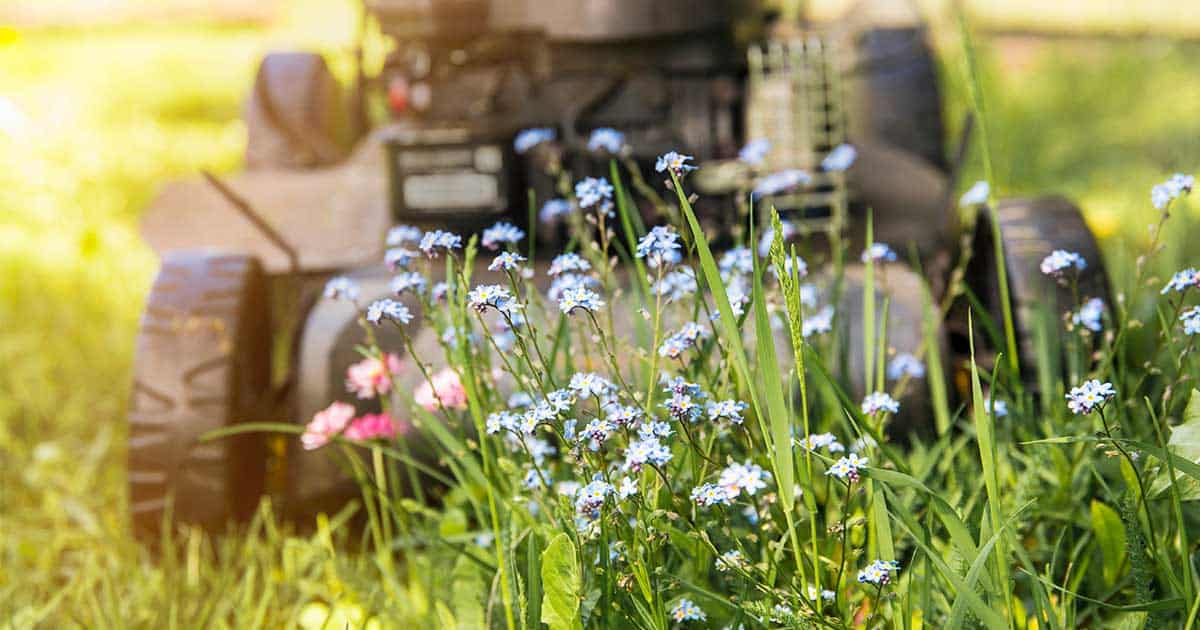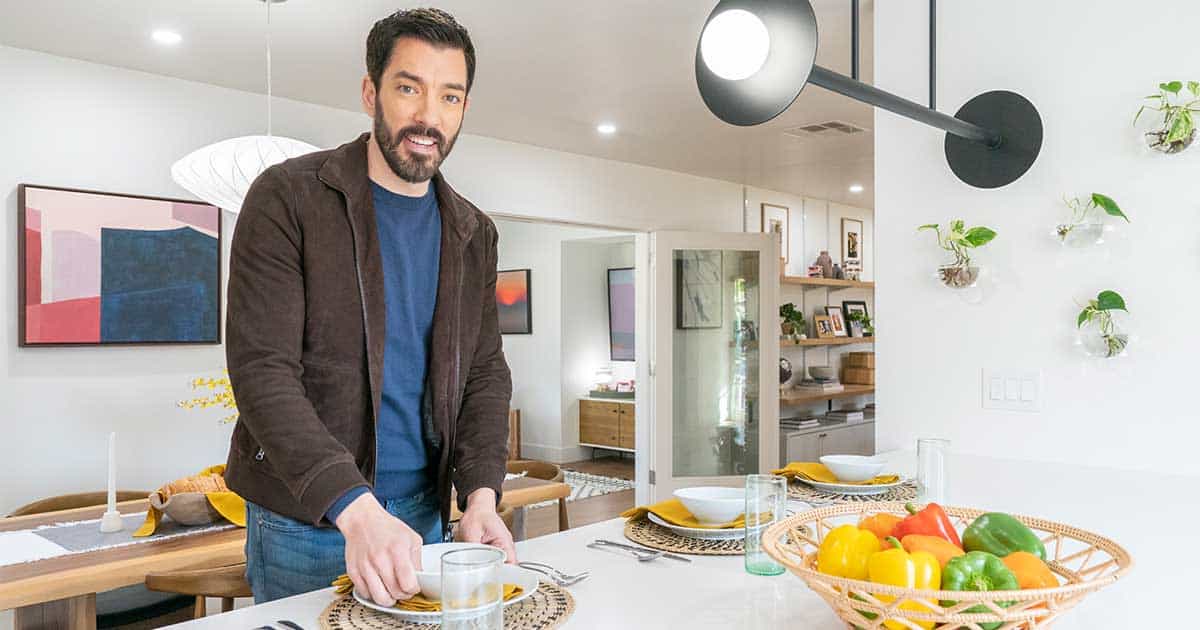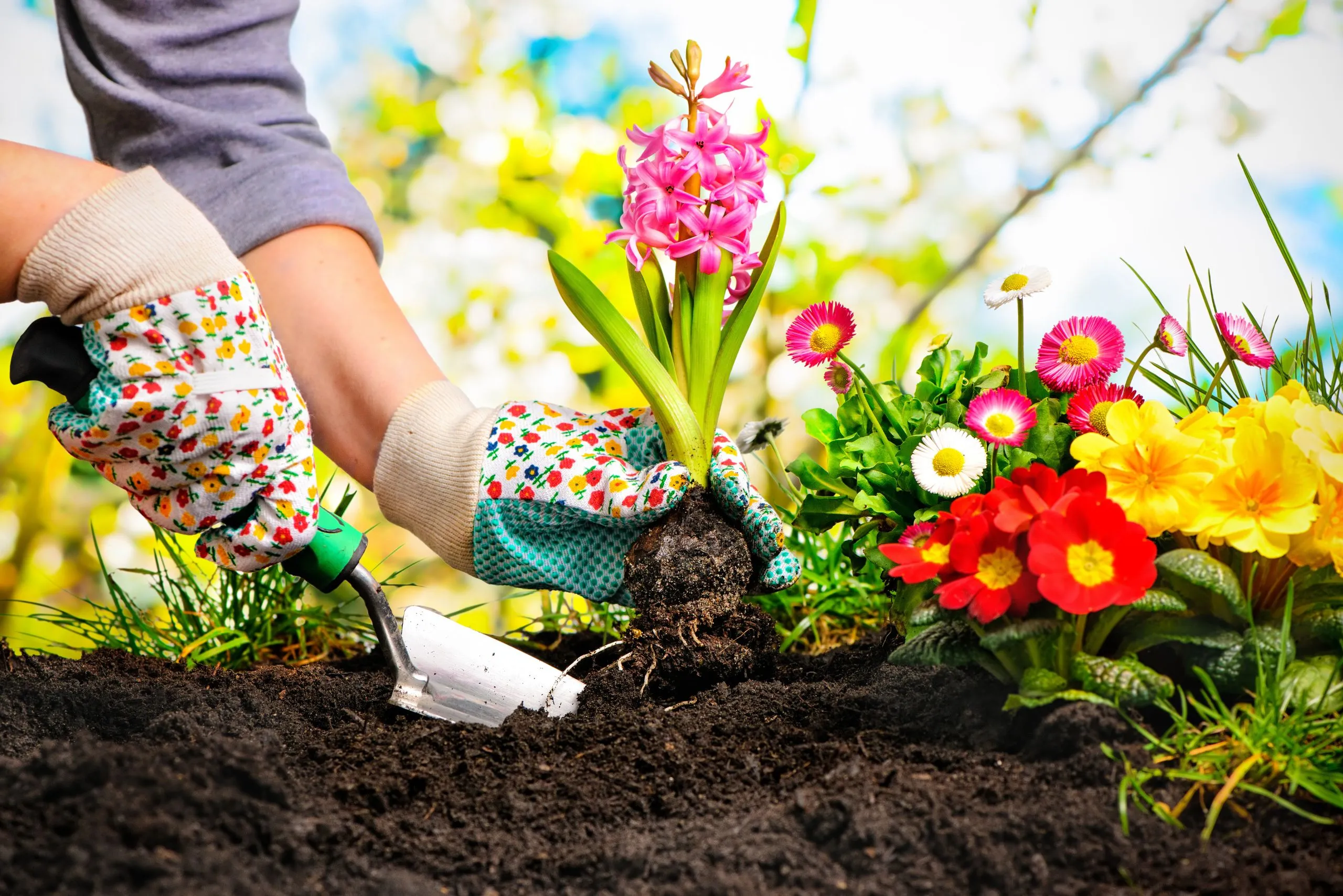Recycling Facts to Help Get You Started
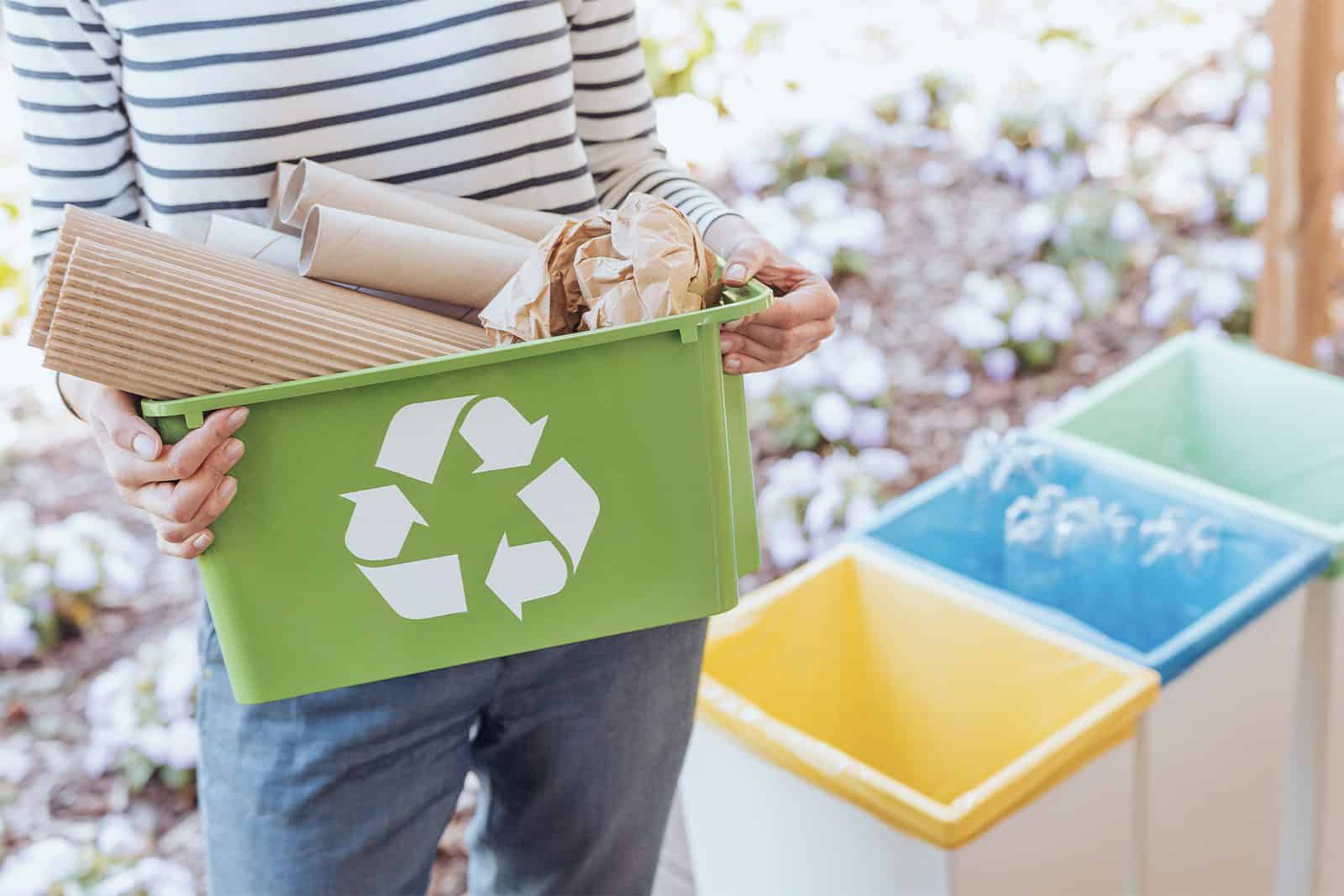
This site contains affiliate links to products. We may receive commission for purchases made through these links. Price at time of publish date may change.
Now more than ever, we need to do our part to help preserve our beautiful environment. Though it’s important to educate ourselves on larger policies, there are also everyday things we can do at home, like recycling. If you’re new to the process, or just need a refresher, we put together a list of recycling facts and tips you can refer back to, so you know that you’re doing all you can to live a more eco-friendly life. From composting food waste, to donating used goods, to using eco-friendly alternatives, and practicing sustainable habits, there are a variety of ways to live greener. And knowing how to recycle and making it a priority is a great start.
There are also small swaps you can make every day, like biking to work, using reusable bottles and containers, and buying local produce (or even better—growing it yourself!). Did you know there are even ways to make your landscaping more eco-friendly? These recycling facts will help you discover new ways of staying eco-conscious in your daily life. So what do you say? Ready to reduce, reuse, and recycle better than ever?
Recycling Dos
- DO refer to your local recycling guidelines so you know you’re recycling properly.
- DO empty, clean out/rinse, and let recyclables dry before throwing them in the bin.
- DO try to reduce food waste as much as possible.
- DO remove stickers and labels from containers if you can.
- DO look at the recycling symbol at the bottom of your containers.
Recycling Don’ts
- DON’T throw trash into your recycling containers.
- DON’T toss any food scraps, liquids, or yard waste into your recycling.
- DON’T recycle styrofoam or plastic shopping bags.
- DON’T “wish-cycle,” which is when you recycle something even if you aren’t sure you should. Many things aren’t recyclable, and too many mistakes could end up contaminating good materials.
What Can I Recycle?
Each state and local municipality has different rules and restrictions, like what you’re allowed to recycle, if you need to separate your recyclables, and other specifics. Search online or go to your local recycling center to find your neighborhood guidelines. In general, clean paper and cardboard, rigid plastic containers labeled #1 – 7 (other than styrofoam), aluminum and tin containers, and all glass can usually be recycled curbside. For more information on symbols and specific items, visit EPA.gov.
Clothing and shoes, home items, and working electronics are great things to donate to local shelters or programs. Though this might not typically be what you might think of when you think of “recycling,” it is one simple way to avoid unnecessary waste and keep perfectly usable goods out of landfills. Perhaps even greater than that, though, is how it will help your community.
How Can I Make Recycling Easier?
The simplest way to make recycling easier is by reducing your waste in the first place. There are also mail-in recycling services available to help you recycle things around the house that might not be very straightforward to do yourself, like makeup, cleaning products, and complicated bottles. TerraCycle, for example, offers free recycling services for items like skincare, pet food packaging, haircare, and more; as well as paid recycling services for larger, more complex recyclables like baby gear, backpacks, and 3D printing materials.
What Else Can I Do To Stay Eco-Conscious?
Using alternative, eco-friendly products; composting food scraps; taking advantage of solar power when possible; and generally being more aware of your consumption and waste can go a long way when determining how to be more sustainable. Here are a few other ideas, according to Recycle Across America and other resources:
- Bring your own bag when you shop for groceries or other items.
- Avoid single-use plastics like disposable straws or cutlery.
- Use glass jars for food storage.
- Consider switching to energy-efficient appliances.
- Shop at secondhand stores.
- And more!
There are a ton of recycling facts out there, of course, but what’s most important is that you’re taking all the steps you can to prioritize reducing your waste and help make Mother Nature as beautiful as can be.
Shop Sustainable Swaps
Making Jonathan and Zooey’s House Eco-Friendly
Sustainability is the name of the game at Jonathan and Zooey’s house.
Read More